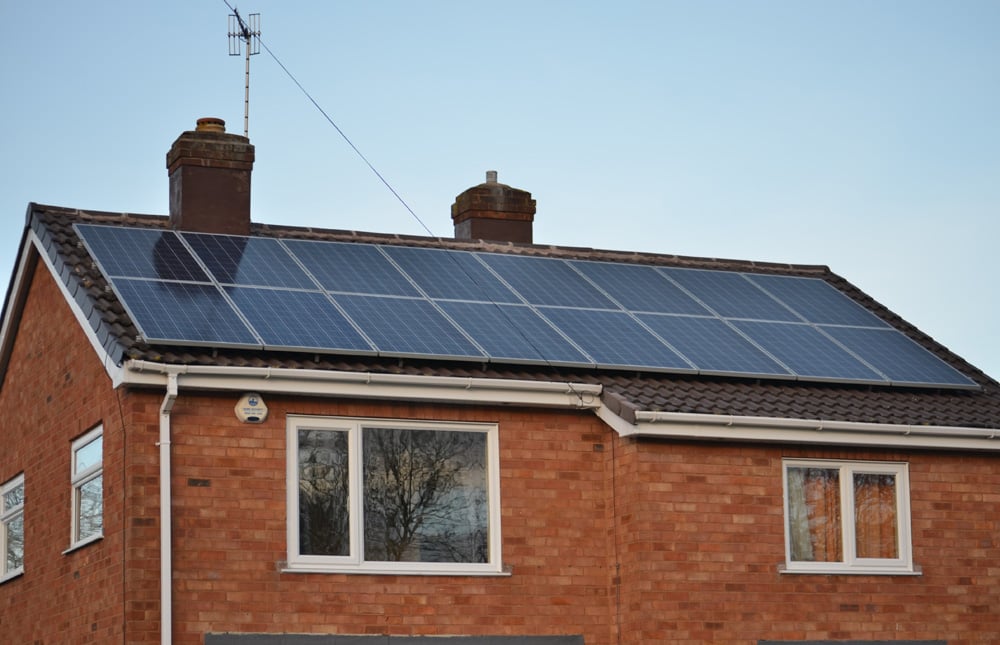
According to a YouGov poll, 79% of all MPs support making solar panels mandatory for all new-build homes from 2025 onwards.
Three in five MPs (approximately 61%) believe that residential battery energy storage systems (BESS) should also be mandatory in new homes. The figure rises to 77% when focused solely on Labour MPs.
The poll, commissioned by the Microgeneration Certification Scheme (MCS) Foundation, coincides with the UK government’s consultation period for the Future Homes Standard.
This piece of legislation will set out regulatory standards for energy efficiency, renewable energy, and carbon reduction in the UK and is due to come into force next year (2025).
The current plans for the Future Homes Standards would have the government effectively ban fossil fuel boilers across the board, making heat pumps or low-carbon heat networks the default instead.
The MCS Foundation has said that the clear support shown by MPs from this poll shows a recognition that the future lies in homes that can generate their own clean energy, with solar and battery storage as integral elements.
Director of external affairs at the MCS Foundation, David Cowdrey, said: “It is very encouraging that such a clear majority of MPs back the principle of renewable energy for all new homes. The government now has a mandate to require a meaningful deployment of solar panels as well as battery storage on new-builds under the Future Homes Standard, and it must enact that as soon as possible.”
Chris Hewett, chief executive of the Solar Energy UK trade association, highlighted the positive impact that everyone involved would benefit from, saying it means “lower bills for newbuild homeowners” as well as “greater energy security for us all”.
He added: “The policy would save newbuild homeowners between £910 to £2,120 per year, according to the government consultation, while pushing purchase prices up only marginally.”
Solar expansion in the UK
The MCS Foundation gathers monthly data detailing low-carbon or renewable technology installations in the UK. From 2023, MCS reported multiple record-breaking statistics from different regions across the nation.
Notably, Scotland saw a 174% surge in small-scale solar installations in 2023 compared to 2020 figures. Nearly 26,000 solar panels were installed in Scotland in 2023, which is the most ever recorded by the certification scheme and almost triples the 2020 number of 9,000.
With over 200,000 installations to date as of January 2024, just over 8% of Scottish households have MCS-certified renewable energy technologies in their home.
However, this statistic rises to one in ten households when referring to Wales, which is reported by MCS to have installed a record number of solar panels and heat pumps in 2023. The total number of Welsh homes and businesses with renewable energy is now over 100,000 after more than doubling the amount of installations from 2022 to 2023.
On a more local level, several councils have recently boasted of reaching new milestones. This includes Exeter City Council, which confirmed that 700 council homes in the region have been retrofitted with low-carbon technologies, including solar photovoltaics (PV).
Part of a wider energy-efficient retrofit programme with £4.1 million in funding, the council expects to retrofit an additional 200 properties in the next year.
Most recently, Hackney Council in London announced its plans to install roof-mounted solar panels at 500 council homes in 2024, providing residents with access to discounted electricity. The project aims to generate a total capacity of 1MW across 4,000 solar PV projects, accounting for 20% of the blocks’ energy consumption.

